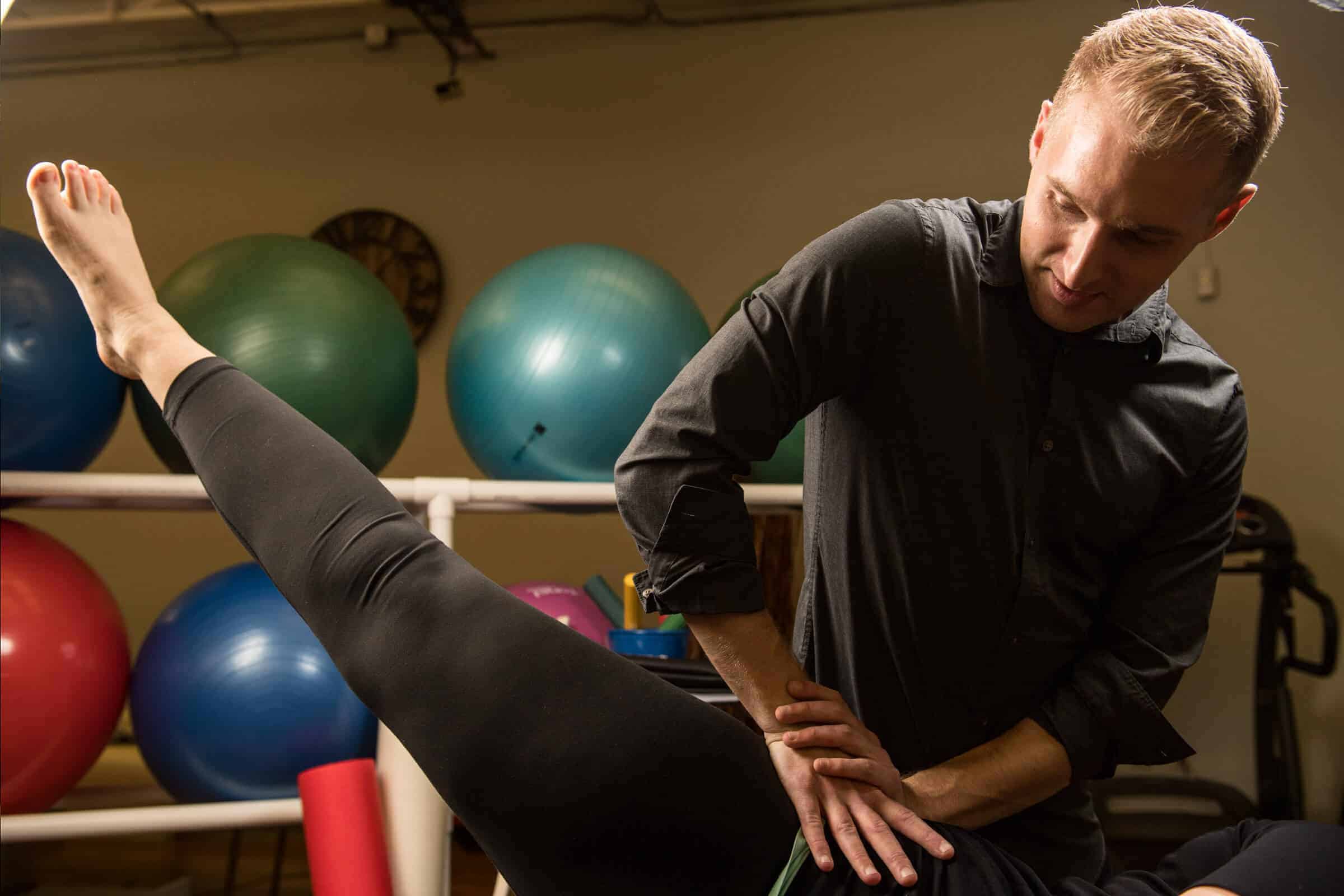Balance
Our body is in a constant state of flux and opposing forces work together to keep us balanced inside and out. That juxtaposition is good, and we need up and down, back and forth, left and right, etc. to be communicating well for our body to function optimally.
Think about it like this… You’re watching the longest game of tug o’war in history. The teams are relatively evenly matched. There is constant shifting towards one side or the other, but neither team can quite get the other over the center line.
Now, let's apply this analogy to our bodies. The teams can be any opposing processes in your body. Let’s do two examples. One that would apply to physical care and another for more physiological restoration.


We Address The Problem's Source
Physical (musculoskeletal) Care: The two teams are opposing muscle groups. For simplicity sake, let’s say muscles on you front side vs. muscles on your backside. Now, let’s say you’ve been sitting a lot… studying, working, watching tv, driving, eating dinner, etc.
Those muscles that bend your hip are one team. The opposing team would then be the muscles that make you stand back up or kick your leg behind you, or walk. Our bodies are designed to move and to make it to tomorrow.
So when we spend an extended period in one position, our bodies forget how to move temporarily (you’ve noticed this when you’re stiff standing up after sitting for a while).
Now let’s say this continues and the amount of time you spend sitting outweighs the amount of time you spend standing or walking. Those muscles that are on your front side are constantly being shortened and don’t have the opportunity to lengthen fully, so they eventually shorten.
You know this as being “tight” or “inflexible.” Well when those muscles are tight or shortened, it’s like you have a team of cheaters on your front side. They went ahead and wrapped the rope around a pole, so the back side team couldn’t possibly pull them even to center.
Find Imbalances In Your Body
Meanwhile, the back side team is working extra hard, in fact, they’re working so hard that they’re starting to get frustrated and yell at each other. This yelling is what you’re hearing your body tell you when you sense that what you’re feeling isn’t quite right.
Your run feels lopsided or back is hurting after shopping, or you’re getting shooting pains every now and again.
In this case, as in many other musculoskeletal injuries, your problem is not where you are feeling the pain, it’s that you are out of balance. Those cues are your body's way of telling you that it can’t work like it should because somebody is cheating and somebody else isn’t pulling his/her weight.

Comprehensive Physiological Care
The two teams in this example may represent different organ systems that work together or chemical reactions in your body that counter one another.
For simplicity let’s look at your adrenal system as a whole. Your adrenal system is your stress coping system.
There are three types of stress physical, chemical, and emotional.
- Physical means aches, pains, and injuries
- Chemical refers to food, pharmaceuticals, supplements or other things we’re putting into our bodies
- Emotional is what you typically think of when you say you’re “stressed.”
Those three stressors are one team. On the other team is your stress mitigating/balancing adrenal system.
For every pull from a stressor, the adrenal system has to release some energy to then pull back and repair or restore.If the adrenal system is not being replenished by nutrients being brought in and broken down or the stressors are just so abundant that the adrenal system cannot replenish fast enough, the stressors win.
That means you notice a whole lot more physical discomfort, the foods you’re eating that your body doesn’t love make you even more bloated, and little emotional stressors that you usually handle with ease make you snap!. You’re not “crazy, ” and you’re not “getting old.” You’re just out of balance.
Now, in either example, what if we could have gotten reinforcements into the weaker side before the overpowering side dragged them through the mud?
Would the recovery have been much easier right? Could the reinforcements have helped the struggling team while they were still on their feet rather than having to pick them all up and dust them off right?
Think about sending in reinforcements as being proactive about your health. You’re noticing that something isn’t quite right, but the pain is only there sometimes, or your bloodwork is still “normal.” The earlier you restore balance, the less effort and clean-up you have to do later.
We’re here to locate where your imbalances stem from so that we can work together to actively and help your body reorganize, regroup, and get back in the game.




